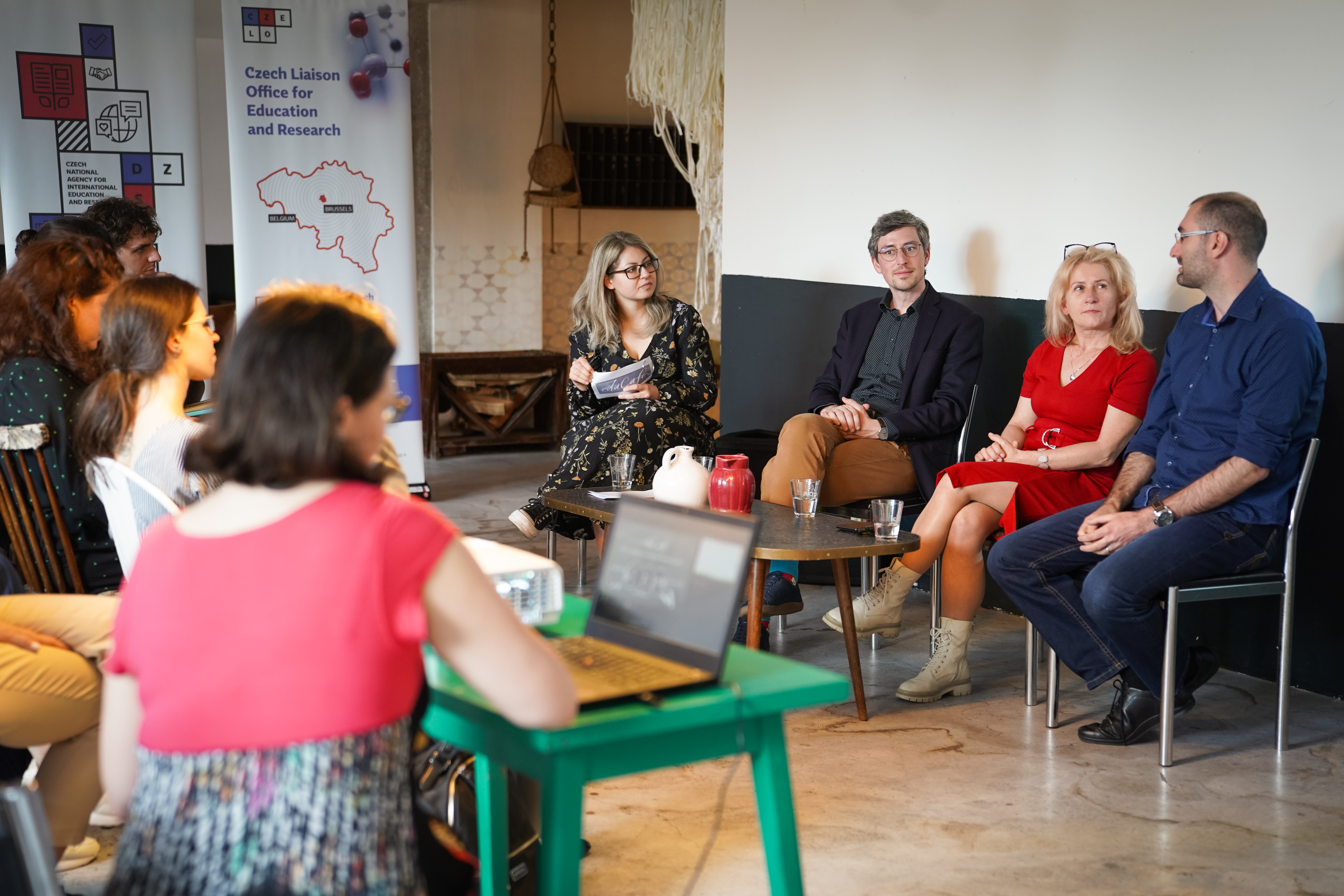This year's second EduCafé presented the benefits and risks of using technologies in education
In June, we organized an EduCafé on EdTech, the combination of technology and education.
The last pre-summer EduCafé took place on Wednesday 5 June at the Kamilou Café in the heart of Brussels. The invitation was accepted by Michal Černý, deputy head of the Department of Information and Library Studies at the Faculty of Arts of Masaryk University and guarantor of the EdTech Master's program, and Michal Hudeček, one of the creators of the app Levebee, which supports the development of math competences. The line-up of guests was completed by Ingrid Beňačková, a teacher at the European School Brussels I, in whose classroom the Včelka app is actively used. The moderator of the debate was Angeliki Psychogyiou, Project Coordinator from the Academic Cooperation Association (ACA) and specialist in digitalisation and sustainability in international higher education.
Inclusion and ethics
One of the main drivers behind the development of the Levebee app was the recognition of the long-term decline in the math competencies of pupils and students. Given that math skills are cumulative, and thus abilities build on each other naturally, the creators of the app decided to help address this problem systematically from an early age. As Michal Hudeček explains, the aim of the app is to rank the tasks from the easiest to the hardest and provide feedback on all of them, which makes it easy to detect gaps in the knowledge of even the youngest pupils.
Michal Černý, a representative of the higher education sector, highlighted the increasing quality of diploma and seminar papers, which can be attributed, among other things, to the rise of artificial intelligence and other technologies. These technologies thus help students both linguistically and informationally and it may not be appropriate to prohibit their use in teaching, but rather to guide students to use them ethically and meaningfully. For this reason, his department teaches courses on information literacy, psychology in online education, digital wellbeing and technology in education.
Finding a balance between the online and offline
The search for balance also came up in the topics prepared by Ingrid Beňačková. According to her, the general feedback on the use of technology in the classroom is very positive, both from parents and from the pupils themselves, who like using Levebee and similar applications and it is clear that it helps them in their further development. However, she also warned that excessive use of technologies in the classroom can negatively affect other skills, such as work activities that require fine motor skills or writing and drawing. Therefore, there is always a need to think about the meaningful use of technology that is appropriate to the age of the pupils.
Michal Hudeček showed some of the challenges that developers of educational applications have to face. These include, for example, maintaining a balance in the involvement of children and other app users. Low engagement can be caused by both too difficult or too simple exercises, which can demotivate children. On the other hand, too much involvement does not necessarily mean that children are learning effectively either: in this respect, it is important to develop each activity sensitively and not to overwhelm children with too many interactive elements that do not add value and only distract.
An important factor in the success of educational apps, as Michal Černý confirmed, is the cooperation between universities, EdTech companies and the schools that subsequently use the apps. In the case of such a cooperation, there is a synergy of several different perspectives, which allows combining both the needs of the users themselves and the know-how and research results of universities with the knowledge and experience of EdTech companies. It is also very useful for universities to see theoretical knowledge applied in practice, which contributes to a better understanding and allows students to participate in solving real problems and challenges.
At the end of the event, there were also questions from the audience and the opportunity to continue informal networking after the discussion.
